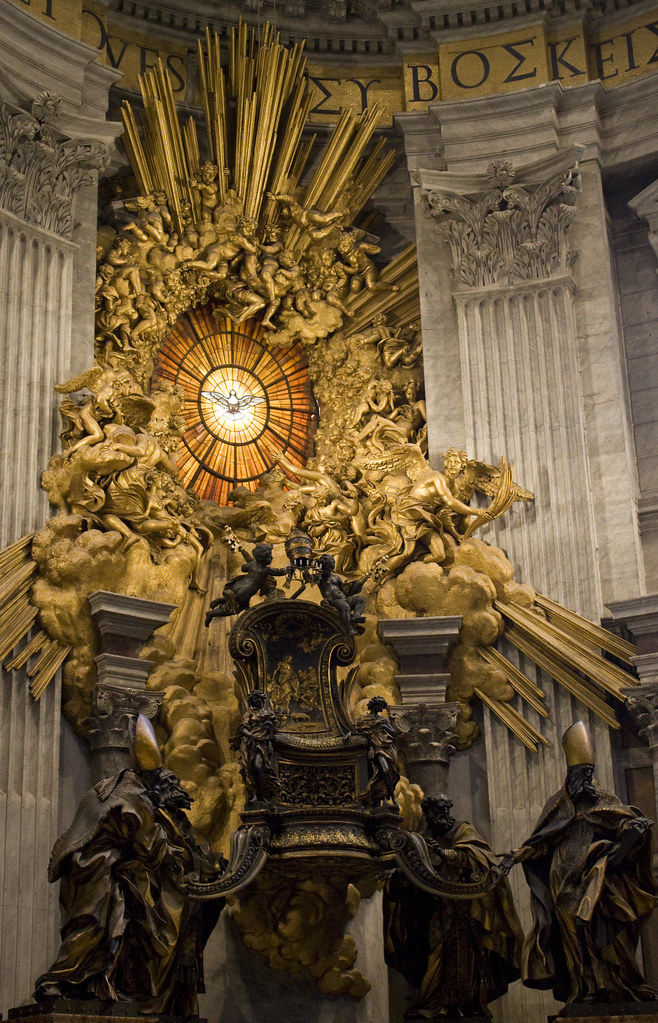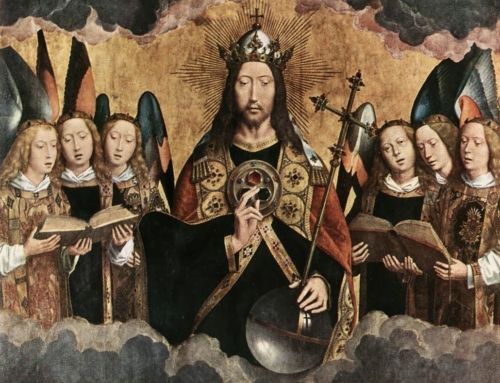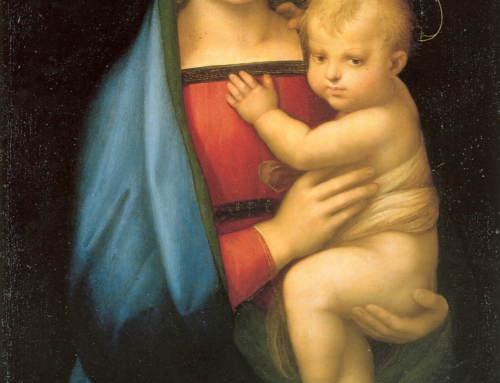As a convert you come across some unusual practices within the Catholic faith (said he, making the understatement of the year)
One of them for me was to find that there was a feast day for a chair. What was I–poor Bob Jones graduate that I was–to make of such an odd celebration? There it was in the ordo as large as life–the Feast of the Chair of Peter.
What was a feast for a chair and what was the chair? Was it the splendid chair that pope sits on to be carried about surrounded by lackeys with peacock fans like some great Eastern potentate? My love for the dramatic gesture surged forward. Was the chair of Peter some obscure reference to a Peter I’d never heard of from a land far away and a time in the distant past? I was told it was a celebration of the Petrine Ministry, but this did not enlighten me much for I had not learned in my Sunday School lessons at the Baptist church what a “Petrine Ministry” was. What is a “Petrine” I thought it might be some sort of porpoise–”Look! The petrines are swimming and jumping!” Or perhaps a Petrine was an unusual type of plum. “I think for dessert I’ll enjoy one of these delicious Petrines.” What then would be a “Petrine Ministry?”
I was flummoxed.
In fact, the Petrine Ministry is the ministry of Peter and the Feast of the Chair of Peter celebrates the Petrine ministry. The chair itself, so they say, is inside the great golden chair in the superb baroque altarpiece by Bernini at the far end of St Peter’s Basilica.
The chair of Peter is, of course, the cathedra–the throne from which the Pope speaks. It is not a throne in order to glorify the person himself, but to honor the royal authority with which he speaks. The concept of “the chair of authority” is actually mentioned in the gospels. In Matthew 23.2, Christ the Lord tells his disciples to listen to the scribes and Pharisees for they “sit in the seat of Moses.” The teachers of the law sat on a special bench when the expounded the wisdom of the Word of God.
This idea carries over into the early Church (which was composed of Jews) so that the apostles sat to teach. The Chair of Peter is therefore the New Testament and Catholic living tradition going right back to the gospels and to the Jewish tradition of the “seat of Moses.” This is also why you will have observed Pope Benedict almost always is seated when he is preaching and teaching. This is not because he is a tired old man, but because he understands the symbolic gesture and the traditional meaning of teaching from the chair.
So. Furniture matters. This is why in every Catholic cathedral you will find the bishop’s throne. It is his chair of authority, and it echoes the chair of Peter. The bishop sits there for solemn ceremonies, ordinations, confirmations etc. This is why every traditionally organized Catholic church will also have a larger chair for the priest, a less significant chair for the deacon and smaller seats for the altar servers and other ministers.
This is all part of the Catholic worldview. I say, partly in jest, “furniture matters.” But not really in jest because not only does furniture matter, but vestments matter, architecture matters, art matters, sacred vessels matter. That’s because matter matters. Catholics have a sacramental mentality. We see God’s goodness and grace welling up in and through all things–in and through our lives and hearts, but also in and through his created world, and in and through the things we create as sub-creators in his image.
What is the furniture like in your church? Does it matter? You bet it does because we are not purely spiritual beings. We have these lumpy, smelly, funny, hairy things called bodies, and this fusion of the physical and spiritual Christ the Lord took upon himself for our eternal salvation.






